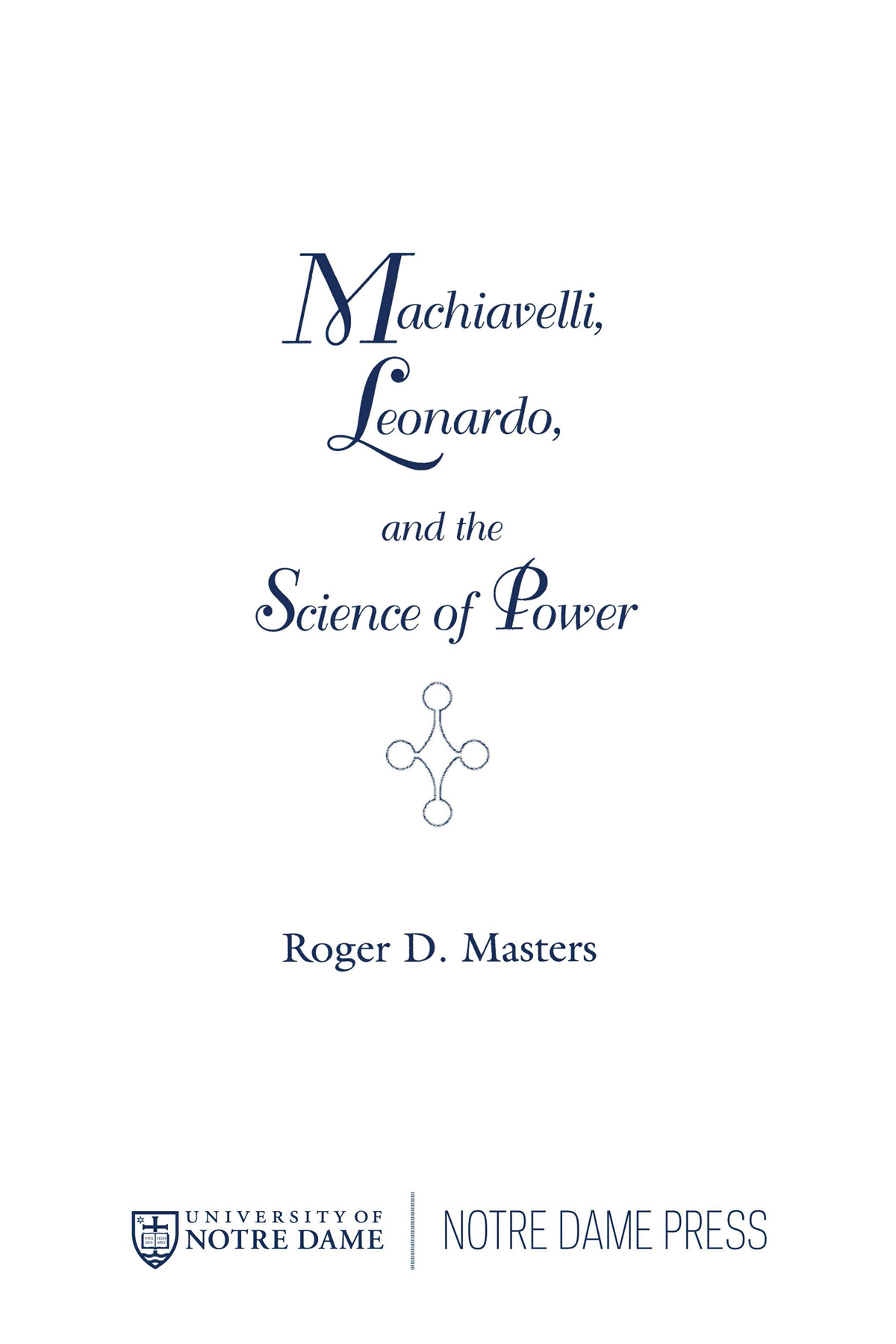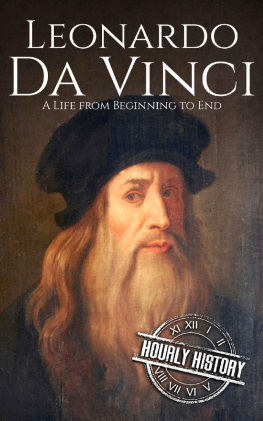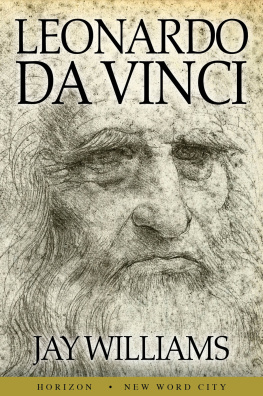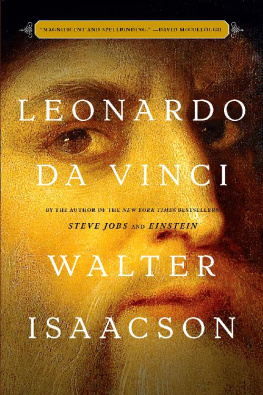
Machiavelli,
Leonardo,
and the Science of Power
The Frank M. Covey, Jr.
Loyola Lectures in Political Analysis
Thomas S. Engeman
GENERAL EDITOR
Our late colleague Richard S. Hartigan founded the Frank M. Covey, Jr., Lectures in Political Analysis to provide a continuing forum for the reanimation of political philosophy. The lectures are not narrowly constrained by a single topic nor do they favor a particular perspective. Their sole aim is to foster serious theoretical inquiry, with the expectation that this effort will contribute in essential ways to both human knowledge and political justice.

Frontispiece. Peter Paul Rubens copy of Struggle around the Standard from Leonardos Battle of Anghiari (c. 1604), black chalk, pen and ink heightened with gray and white, 17 1/4 x 25 inches (45.2 X 63.4 cm). Courtesy of Cabinet des Dessins, Muse du Louvre, Paris.
Machiavelli,
Leonardo,
and the
Science of Power

Roger D. Masters

University of Notre Dame Press
Notre Dame, Indiana 46556
All Rights Reserved
Copyright 1996 by University of Notre Dame
Published in the United States of America
Library of Congress Cataloging-in-Publication Data
Masters, Roger D.
Machiavelli, Leonardo, and the science of power / Roger D. Masters.
p. cm. (Frank M. Covey Jr. Loyola lectures in political analysis)
Includes index.
ISBN: 978-0-268-01433-9 (paperback) ISBN: 978-0-268-01416-2 (hardback)
1. Machiavelli, Niccol, 14691527Contributions in political science. 2. Leonardo da Vinci, 14521519Contributions in political science. 3. Power (Social sciences)
I. Title. II. Series.
JC143.M4M387 1995
Book design by Wendy Torrey and Jeannette Morgenroth
Set in 1013 Galliard by Books International
Printed and bound by Edwards Brothers, Inc.
eISBN 9780268160111
The paper used in this publication meets the minimum requirements of the American National Standard for Information SciencesPermanence of Paper for Printed Library Materials, ANSI Z 39.48-1984..
This e-Book was converted from the original source file by a third-party vendor. Readers who notice any formatting, textual, or readability issues are encouraged to contact the publisher at .
In Memoriam
Henry W. Ehrmann
(19081994)
I have observed in him those qualities strongly desired in a good friend by his friend and in a citizen by his native city.
Contents
Indeed, it is evident that the philosophy of nature is indispensable.
Leo Strauss1
What is the difference between right and wrong? Can we know anything about justice and morality in the sense that we know truths in physics or chemistry? Because modern science seems to create a gulf between facts and values, these perennial questions have become particularly acute.
We live in a time marked by a lack of consensus on moral or legal principles. Cultural diversity has come to symbolize not merely respect for others, but an inability to explain why some forms of behavior are superior to others. Just Do Ita popular motto on T-shirts in some placeshas become the tacit standard of many in business, politics, law, and everyday life. For the terrorist as for the literary deconstructionist, commitment is the measure of right and wrong.
Most of us, of course, continue to respect moral standards and legal obligations. But the reasons for what we do seem unclear. For every practical issue, politicians and preachers proclaim diametrically opposed views with equal fervor. Is it a question of abortion? For some, the answer is a fetuss right to life; for others, it is a womans right to choose. Should we pay taxes? For some, governmental activity is always inherently suspect and no new taxes an almost sacred refrain; for others, social obligation extends to a guarantee of equal opportunity if not equal success to all.
Since antiquity, such issues have been the focus of serious thought about human nature and society. In private life, the ordinary person confronts similar issues, often wondering why social norms and laws exist. Little wonder that theologians and political philosophers have offered diverse answers to the questions asked by every growing child, not to mention every intelligent citizen.
In the Western tradition, the concept of human nature has generally been central to the religious doctrines and secular theories that explain society, law, and morality. The origins and character of our species have also been a matter of scientific study since the ancient Greeks. As a result, issues of moral and political thought touch on the findings of natural science as well as on philosophic theories and religious doctrines.
Since Darwin published The Origin of Species in 1858, the need to relate questions of human nature and society to the natural sciences has become even more obvious. This century has seen unparalleled advances in the scientific understanding of evolution and human biology: we know more today about our species nature than ever before. Paradoxically, however, this century has also seen an unparalleled division between the study of nature and the study of morality, law, and politics.
My book is part of a growing concern to respond to this situation. Over the last twenty years, along with other scholars, I have suggested a return to the naturalistic tradition of Western thought, in which a scientific study of human life is directly relevant to questions of morality and law.
In my own teaching, research, and publication I have tried to integrate evolutionary biology, political psychology, political philosophy, law, and human ethology. The organization of the present book, while unorthodox, thus reflects an effort to bring together two traditions that have drifted apart over the last century.
To explore the issues of political philosophy as they have been articulated in the past, I set out to focus on a single thinkerNiccol Machiavelli. This great and subtle Florentine is often said to have founded a modern scientific study of human affairs. To assess the truth of Machiavellis theories, however, we must consider what is known, today, about hominid evolution and the natural factors influencing social behavior. This procedure is particularly necessary now that Darwinian evolutionary theory is generally accepted within the scientific community as the explanation of human origins.
To compare Machiavellis theories with scientific findings, it is first necessary to state his theories accurately. This turns out to be more difficult than might first appear. Scholars have proposed very different interpretations of The Prince, Discourses on Titus Livy, and other works by Machiavelli. It is, therefore, necessary to read the texts carefully in order to define Machiavellis theory of human nature before we can test it against the latest scientific research. In so doing, I realized that scholars have ignored some critical evidence.
Next page













